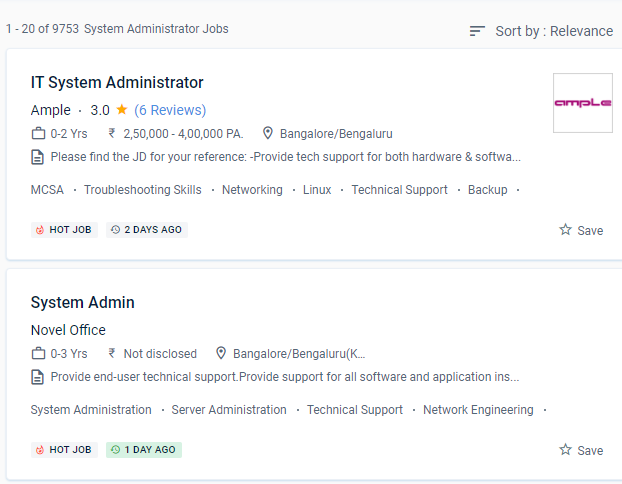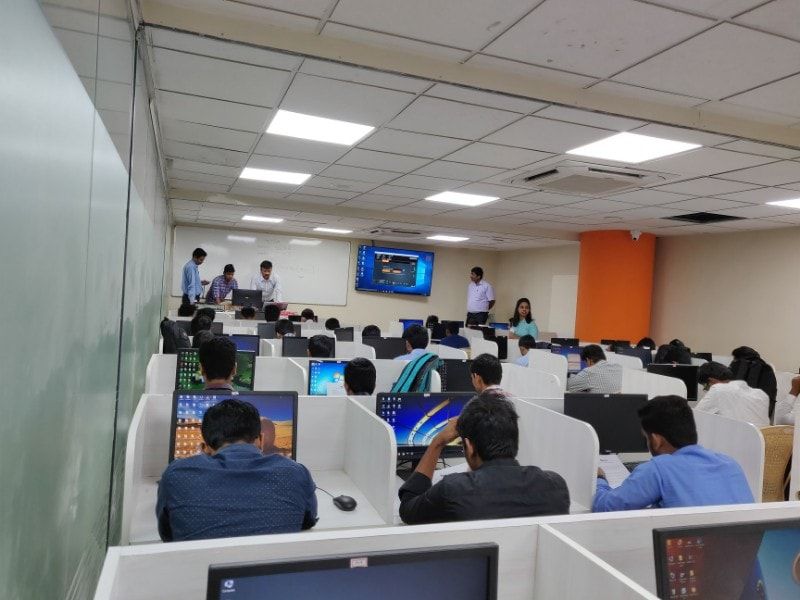System Administration Training by Experts
Our Training Process

System Administration - Syllabus, Fees & Duration
MODULE 1
- System administration introduction, policies, overview, UNIX history and basis
MODULE 2
- File systems and disks
MODULE 3
- Software installation concepts
MODULE 4
- Multi users basics, politics, policies and ethics
MODULE 5
- Automating administrative tasks
MODULE 6
- Networking
MODULE 7
- Backup and disaster recovery
MODULE 8
- DNS
MODULE 9
- SMTP, HTTP
MODULE 10
- Configuration management
MODULE 11
- Distributed computing
MODULE 12
- SNMP, monitoring
MODULE 13
- System security
This syllabus is not final and can be customized as per needs/updates





 The System Administration course in Gurgaon will take you from working on a single machine to managing a complete fleet. Information technology (IT) experts execute the work of systems administration for a company. You'll also learn how to manage and configure servers, as well as how to manage PCs, user information, and user productivity using industry tools. You now understand what system administration entails, as well as the functions that system administrators execute and the talents that system administrators possess. Computer scientists research to develop new IT approaches that are both effective and efficient. Some people excel at determining the company's technology needs as information systems managers.
They are in charge of producing IT policy recommendations for their organization. Systems administration is the division of information technology that is in charge of keeping multi-user computer schemes up and running.
System administration roles are broad and often vary based on the type of computer system being managed, however, the majority of them have some fundamental functions that can be accomplished in a variety of ways. Students who pursue a diploma in this field have a fantastic opportunity to expand their expertise.
The System Administration course in Gurgaon will take you from working on a single machine to managing a complete fleet. Information technology (IT) experts execute the work of systems administration for a company. You'll also learn how to manage and configure servers, as well as how to manage PCs, user information, and user productivity using industry tools. You now understand what system administration entails, as well as the functions that system administrators execute and the talents that system administrators possess. Computer scientists research to develop new IT approaches that are both effective and efficient. Some people excel at determining the company's technology needs as information systems managers.
They are in charge of producing IT policy recommendations for their organization. Systems administration is the division of information technology that is in charge of keeping multi-user computer schemes up and running.
System administration roles are broad and often vary based on the type of computer system being managed, however, the majority of them have some fundamental functions that can be accomplished in a variety of ways. Students who pursue a diploma in this field have a fantastic opportunity to expand their expertise.



















































































